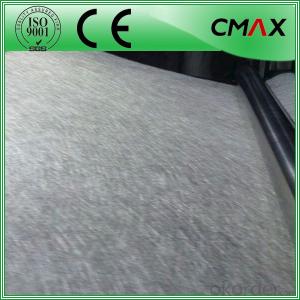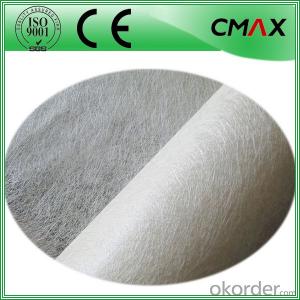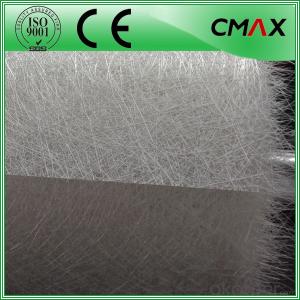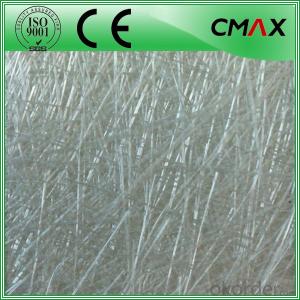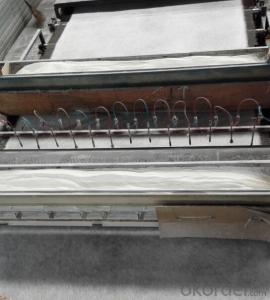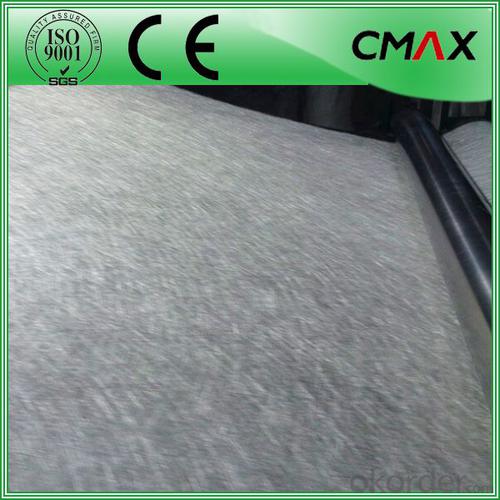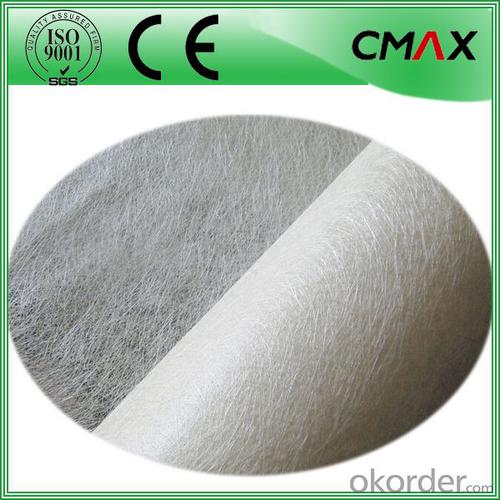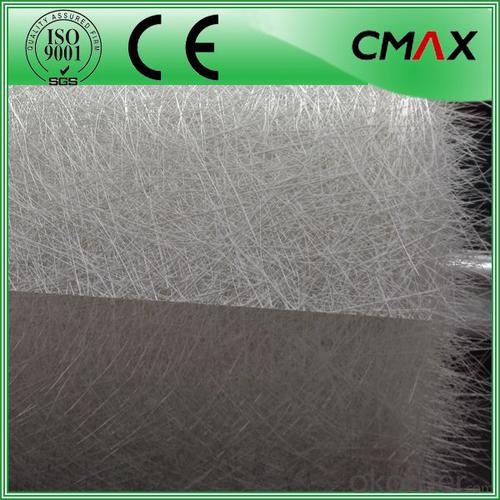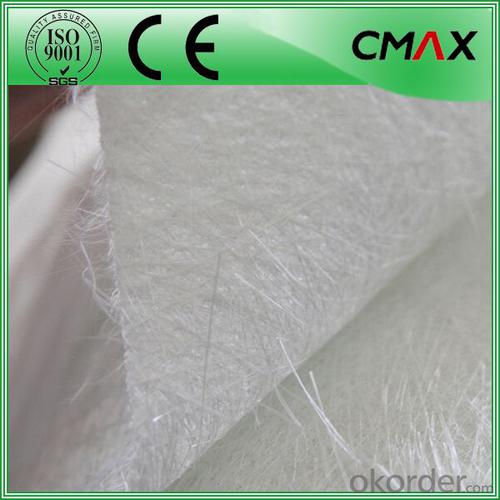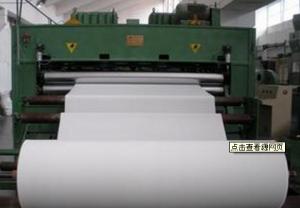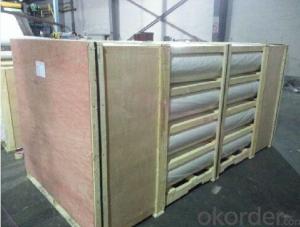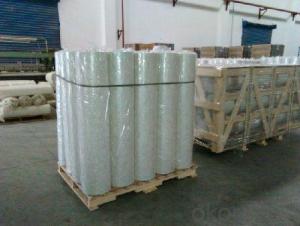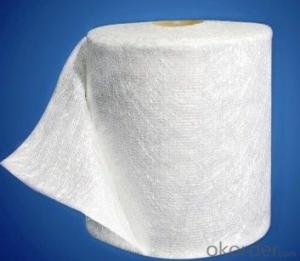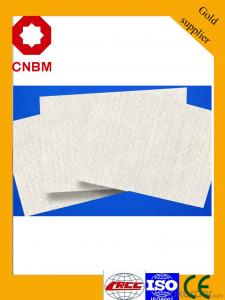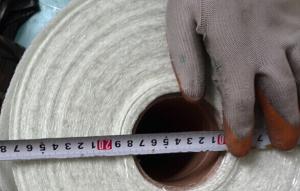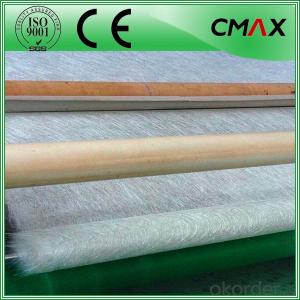Fiberglass Mat Tissue Chopped Strand Mat Made in China
- Loading Port:
- China main port
- Payment Terms:
- TT OR LC
- Min Order Qty:
- 1000 m.t
- Supply Capability:
- 1000000 m.t/month
OKorder Service Pledge
OKorder Financial Service
You Might Also Like
Fiberglass Chopped Strand Mat Made In China
Introduction:
Chopped Strand Mat is characterized by good combination of resin, easy operation, good wet strength retention, good laminate transparency and low cost. It is suitable for the application by hand lay-up FRP moldings, such as, various sheets and panels, boat hulls, boat tubs, cooling towers, corrosion resistant, vehicles, etc.
Function:
Fiberglass chopped strand mat is chopped using the "E" chopped glass and emulsion adhesive bond. It is suitable for hand lay and can enhance the unsaturaed ployester resins.
Product Features:
Consistent thickness and stiffness;
Rapid impregnating and good compatibility with resin;
Superior wet through with less air trap;
Good mechanical properties and high strength of parts.
Superior acid corrosion resistance
Technical Data:
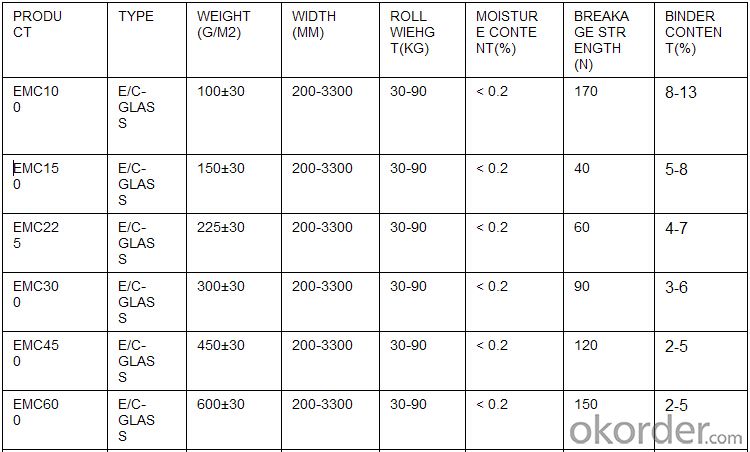
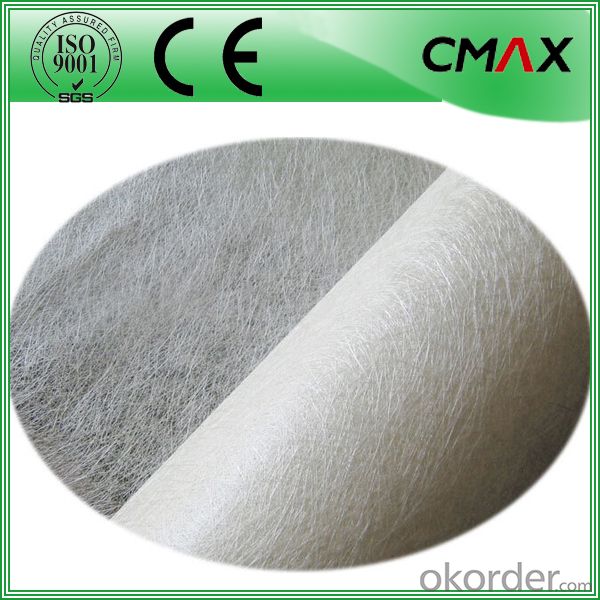
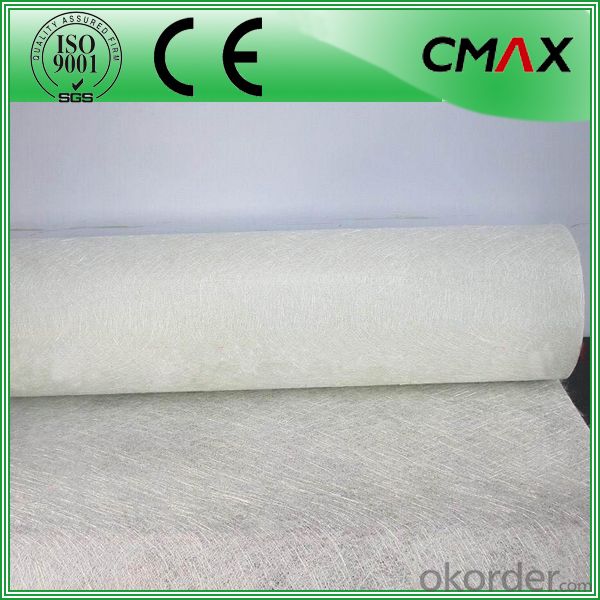
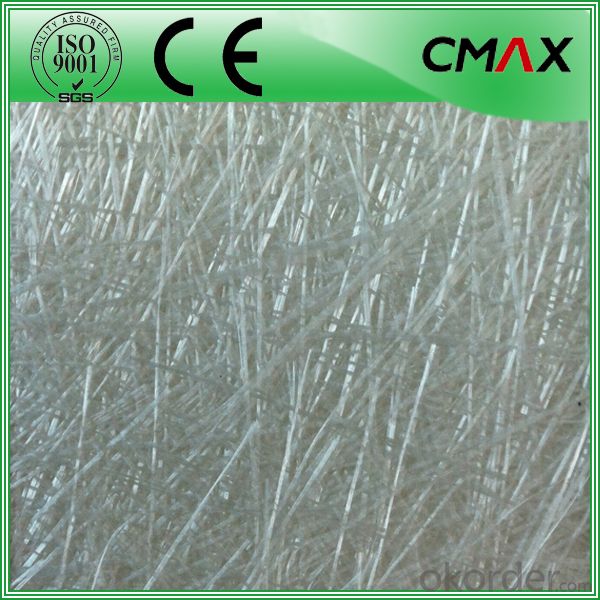
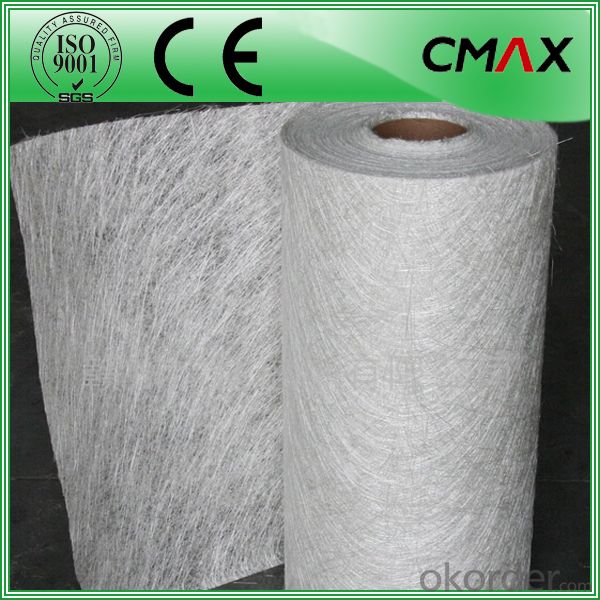
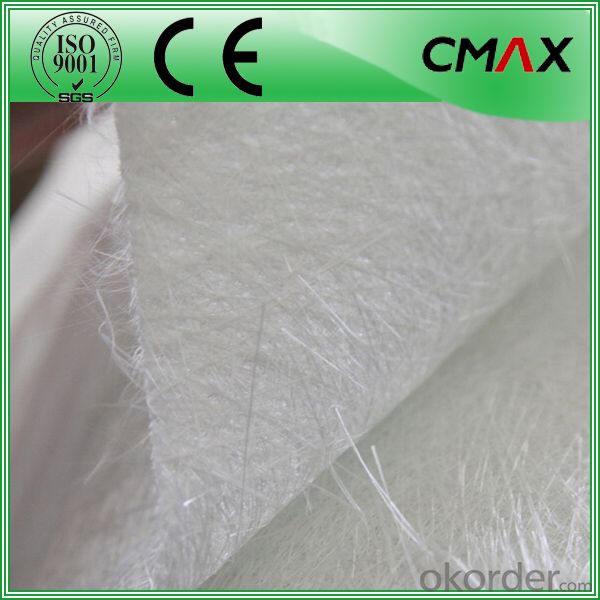
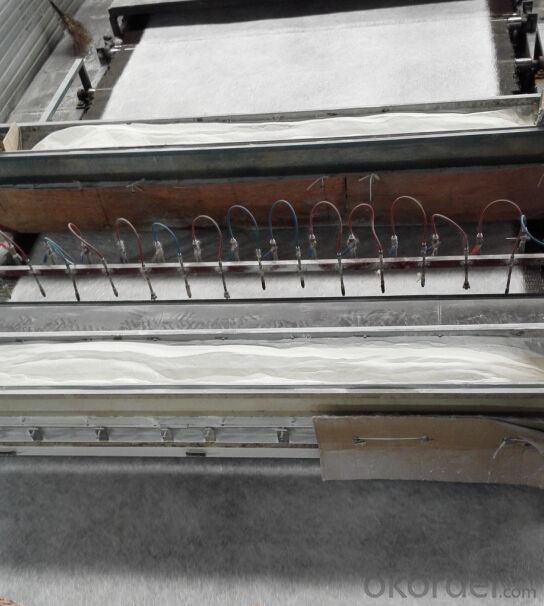
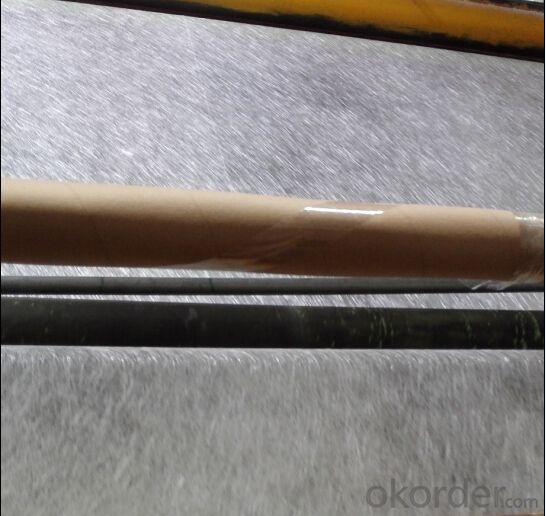
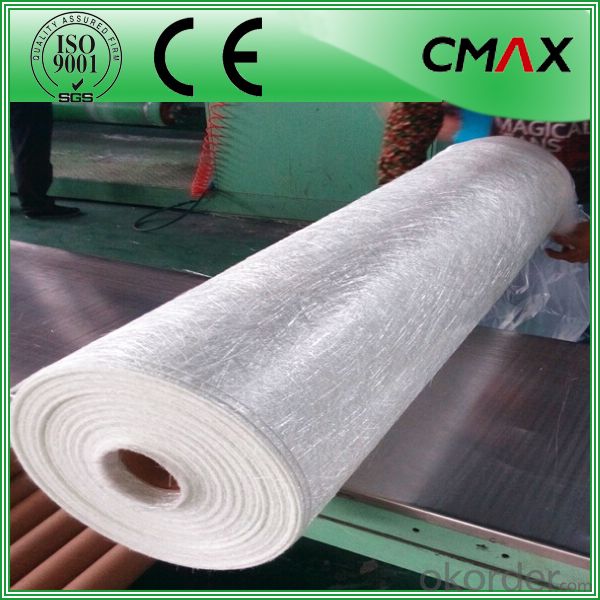
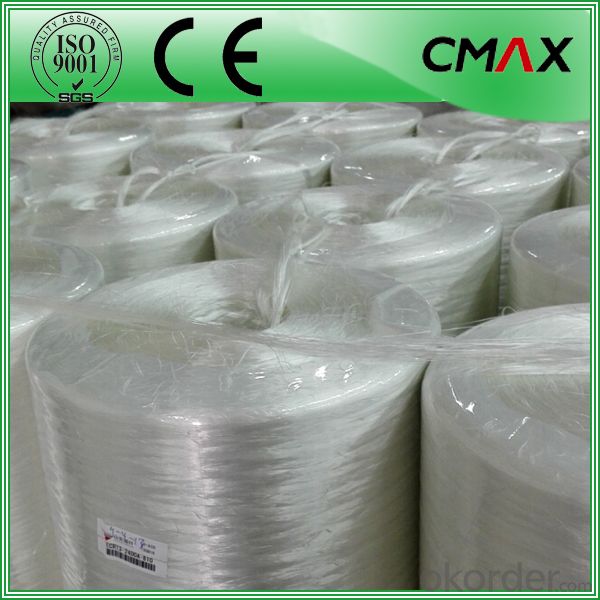
Packaging:
Product is manufactured in form of a roll wrap on a paper tube then after packed in a plastic bag and placed in a cardboard carton. Rolls can be loaded in a container directly or on pallets.
Deposited:
Chopped Strand Mat should be stored in dry, cool, clean and rainproof area. Recommended temperature range of storage is between 15-30 and relative humidity between 40%-70%.
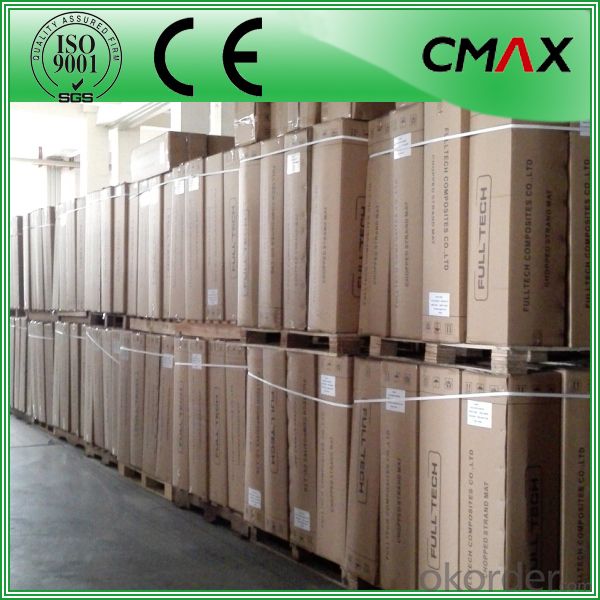
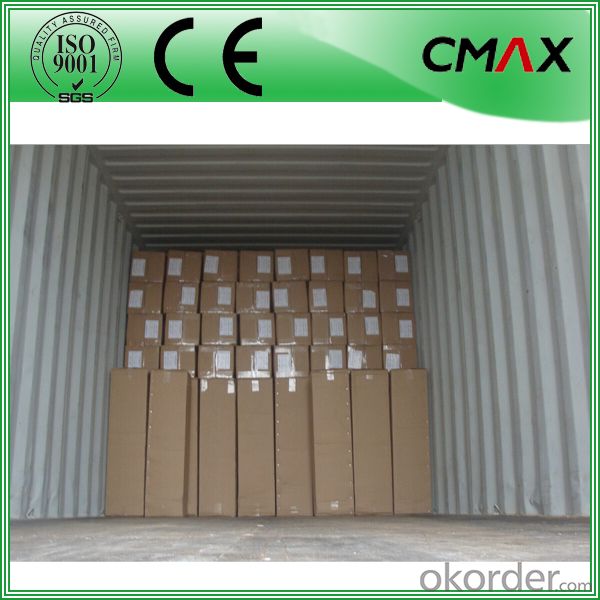
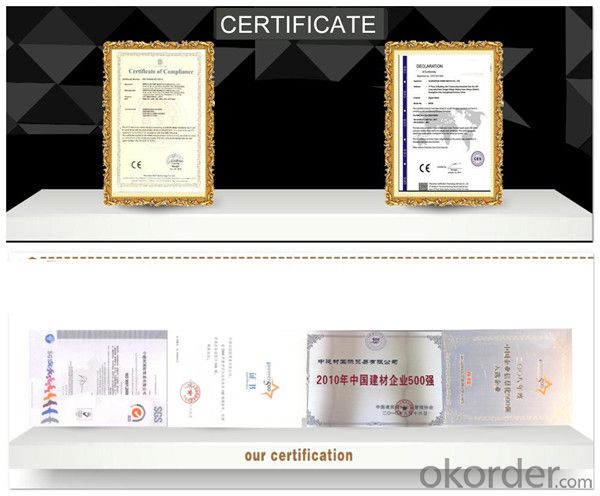
FAQ:
Is sample available ?
Yes, we provide the free samples, but customers themselves need pay the shipping fee
What's your MOQ?
Our MOQ is one 1*20' full container loading
How do you pack the fiberglass
(1) First, the mat is in roll packed in White PE fIlm.
(2) Then the rolls packed in the carton
4.Which knid of payment terms can you accept?
We can accept 30% prepayment, 70% payment before shippment. LC is also accepted
- Q: Can fiberglass mat tissue be used for soundproofing?
- Yes, fiberglass mat tissue can be used for soundproofing. It is a commonly used material in soundproofing applications due to its excellent sound absorption properties. The dense structure of fiberglass mat tissue helps to reduce and absorb sound waves, thereby minimizing noise transmission through walls, floors, and ceilings.
- Q: Can fiberglass mat tissue be used for making lightweight panels?
- Yes, fiberglass mat tissue can be used for making lightweight panels. Fiberglass mat tissue is a thin and lightweight material made from fine glass fibers, which are bonded together with a resinous binder. This material is commonly used in the construction industry to reinforce surfaces and provide strength to various applications. When used in panel manufacturing, fiberglass mat tissue can be an excellent choice for producing lightweight panels. The thin and flexible nature of the material allows it to be easily incorporated into panels without adding significant weight. Additionally, fiberglass mat tissue has excellent strength properties, which can contribute to the overall structural integrity of the panels. Furthermore, fiberglass mat tissue can provide insulation and soundproofing properties to the panels, making them suitable for applications where these characteristics are required. The material is also resistant to corrosion and moisture, which enhances the durability and longevity of the panels. Overall, fiberglass mat tissue is a versatile and lightweight material that can be effectively used for making lightweight panels. Its strength, flexibility, insulation properties, and resistance to corrosion and moisture make it a suitable choice for various applications in industries such as construction, automotive, aerospace, and marine.
- Q: Can fiberglass mat tissue be used for bridge deck rehabilitation?
- Yes, fiberglass mat tissue can be used for bridge deck rehabilitation. It is a commonly used material due to its durability, strength, and resistance to corrosion. Additionally, it provides a smooth surface for the bridge deck, helps in preventing cracking and deterioration, and improves the overall structural integrity of the bridge.
- Q: Can fiberglass mat tissue be used for making lightweight countertops?
- Yes, fiberglass mat tissue can be used for making lightweight countertops. Fiberglass mat tissue is a thin, lightweight material made from fine glass fibers, which makes it an ideal choice for creating lightweight countertops. It provides strength and durability while also being easy to work with and mold into various shapes and sizes. Additionally, fiberglass mat tissue is resistant to moisture, chemicals, and heat, making it a suitable material for countertops that may be exposed to these elements. Overall, using fiberglass mat tissue for making lightweight countertops is a practical and efficient solution.
- Q: How does fiberglass mat tissue compare to other types of insulation materials?
- Fiberglass mat tissue stands out as an insulation material with distinct characteristics and benefits when compared to other options. To begin with, its thermal insulation properties are remarkable. With its low thermal conductivity, it effectively minimizes heat transfer between the inside and outside of buildings. As a result, it helps maintain cooler temperatures in summer and warmer temperatures in winter, leading to energy savings and enhanced comfort. Moreover, fiberglass mat tissue excels in sound insulation. It effectively reduces noise transmission through walls and floors, creating a calm and peaceful indoor environment. This is particularly advantageous in commercial buildings, where noise reduction plays a vital role in productivity and customer satisfaction. Notably, fiberglass mat tissue is lightweight and flexible, making it easy to handle and install. It can be easily tailored to fit around obstacles such as pipes and ducts, ensuring a tight and efficient insulation barrier. This simplifies installation, saving time and labor costs during construction or renovation projects. Another significant advantage of fiberglass mat tissue is its fire resistance. As a non-combustible material, it does not contribute to the spread of fire. This is especially crucial in buildings prioritizing fire safety, such as hospitals, schools, and residential properties. Furthermore, fiberglass mat tissue is durable and long-lasting. It does not degrade or lose its insulation properties over time, guaranteeing consistent energy efficiency and performance for many years. This durability makes it a cost-effective choice, reducing the need for frequent replacement or maintenance. Lastly, fiberglass mat tissue is environmentally friendly. It is manufactured using recycled glass and sand, decreasing the demand for raw materials. Additionally, it is recyclable at the end of its lifespan, reducing waste and promoting sustainability. In conclusion, fiberglass mat tissue offers exceptional thermal and sound insulation, effortless installation, fire resistance, durability, and environmental benefits. While other insulation materials may present their own advantages, fiberglass mat tissue remains a versatile and reliable option for diverse applications.
- Q: What is the specific gravity of fiberglass mat tissue?
- The specific gravity of fiberglass mat tissue can vary depending on the specific composition and manufacturing process. However, generally speaking, fiberglass mat tissue typically has a specific gravity ranging from 1.8 to 2.2. Specific gravity is a measurement that compares the density of a substance to the density of a reference substance, usually water. A specific gravity of 1.0 indicates that the substance has the same density as water, while a value greater than 1.0 indicates a higher density. Therefore, the specific gravity of fiberglass mat tissue suggests that it is denser than water.
- Q: What is the delamination strength of fiberglass mat tissue?
- The ability of fiberglass mat tissue to resist the separation or detachment of its layers, known as delamination strength, is influenced by various factors. These factors include the quality of the resin used, the thickness and density of the mat, and the manufacturing process. To ensure durability and structural integrity, fiberglass mat tissue is typically designed with a high delamination strength. It is composed of multiple layers of glass fibers held together by a binder or resin. The bonding between these layers is crucial in preventing delamination. Various testing methods, such as the peel test, can determine the delamination strength of fiberglass mat tissue. This test measures the force required to separate the layers and provides valuable information about the adhesive strength between them, helping to assess the material's overall quality. The delamination strength may vary depending on the specific application and requirements. Different industries, such as construction, automotive, marine, and aerospace, may have different delamination strength specifications for their fiberglass mat tissue. Manufacturers typically provide technical data or specifications indicating the delamination strength of their products. It is important to consider external factors that can influence the delamination strength of fiberglass mat tissue, such as exposure to extreme temperatures, moisture, or chemical substances. Proper installation, maintenance, and adherence to recommended usage guidelines are crucial in maintaining the desired delamination strength and overall performance of the material.
- Q: Is fiberglass mat tissue suitable for sound absorption?
- Fiberglass mat tissue is indeed appropriate for sound absorption. Its exceptional acoustic properties make it a highly efficient material for decreasing noise levels and enhancing sound quality in different settings. The fibrous composition of the mat tissue offers a large surface area capable of absorbing sound waves and converting them into heat energy. This renders it an optimal choice for soundproofing walls, ceilings, and floors in buildings, as well as for automotive, industrial, and marine applications. Moreover, fiberglass mat tissue is lightweight, simple to install, and possesses excellent durability and fire resistance, further augmenting its aptness for sound absorption objectives.
- Q: Can fiberglass mat tissue be used for wall insulation?
- Yes, fiberglass mat tissue can be used for wall insulation. Fiberglass mat tissue is a lightweight and flexible material that is commonly used for thermal and acoustic insulation in buildings. It is made from fine fibers of glass that are woven together to form a mat. This mat is then used as a layer of insulation, either in the form of rolls or batts, that is placed between the wall structure and the finished wall surface. Fiberglass mat tissue is an effective insulation material because it has a high resistance to heat transfer. It helps to prevent heat loss in the winter and heat gain in the summer, reducing energy consumption and maintaining a comfortable indoor temperature. It also acts as a sound barrier, reducing noise transmission between rooms and from outside sources. Furthermore, fiberglass mat tissue is non-combustible, which means it does not contribute to the spread of fire. This makes it a safe choice for wall insulation, as it helps to slow down the progression of a fire and provides valuable time for occupants to evacuate. In addition to its insulation properties, fiberglass mat tissue is also easy to install. It can be cut to size and fitted into wall cavities, ensuring a snug and efficient insulation layer. It is also durable and long-lasting, providing insulation benefits for many years. Overall, fiberglass mat tissue is a suitable choice for wall insulation due to its thermal and acoustic properties, fire resistance, ease of installation, and durability.
- Q: Can fiberglass mat tissue be used for making lightweight doors?
- Yes, fiberglass mat tissue can be used for making lightweight doors. Fiberglass mat tissue is a lightweight material that is commonly used in various industries for its strength and durability. It is made of thin strands of fiberglass that are bonded together with a binder, resulting in a strong and flexible material. When used in the construction of doors, fiberglass mat tissue offers several advantages. Firstly, it is lightweight, making it ideal for creating doors that are easy to handle and install. This can be particularly beneficial in residential or commercial settings where doors are frequently opened and closed. Additionally, fiberglass mat tissue possesses excellent thermal and acoustic insulation properties. This means that doors made with this material can effectively block out noise and regulate temperature, creating a more comfortable and energy-efficient environment. Furthermore, fiberglass mat tissue is resistant to moisture, rot, and insects, making it a durable and long-lasting option for door construction. It can withstand harsh weather conditions, making it suitable for both interior and exterior doors. Overall, fiberglass mat tissue is a versatile material that can be used to create lightweight doors that offer strength, durability, insulation, and resistance to various environmental factors.
Send your message to us
Fiberglass Mat Tissue Chopped Strand Mat Made in China
- Loading Port:
- China main port
- Payment Terms:
- TT OR LC
- Min Order Qty:
- 1000 m.t
- Supply Capability:
- 1000000 m.t/month
OKorder Service Pledge
OKorder Financial Service
Similar products
Hot products
Hot Searches
Related keywords
